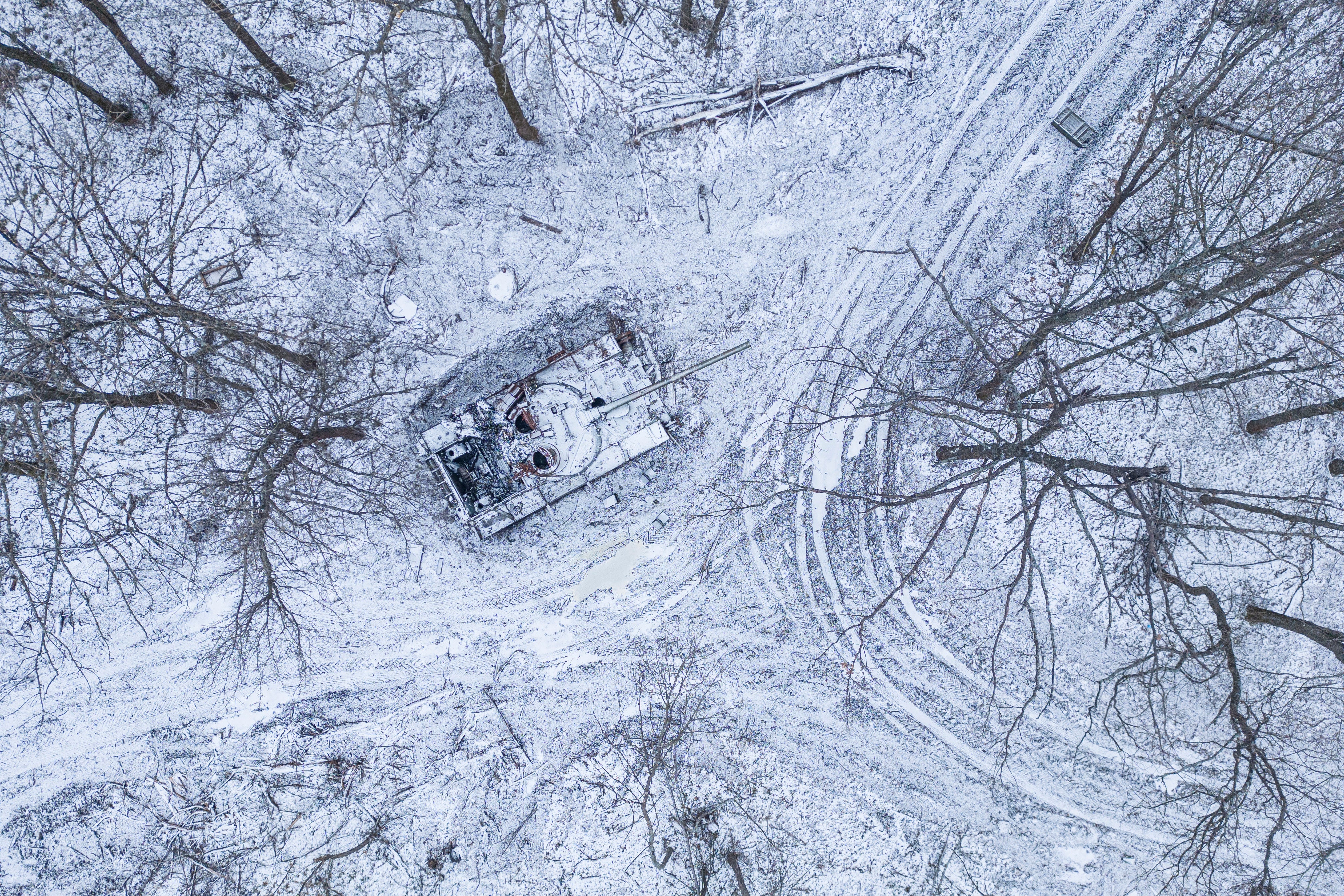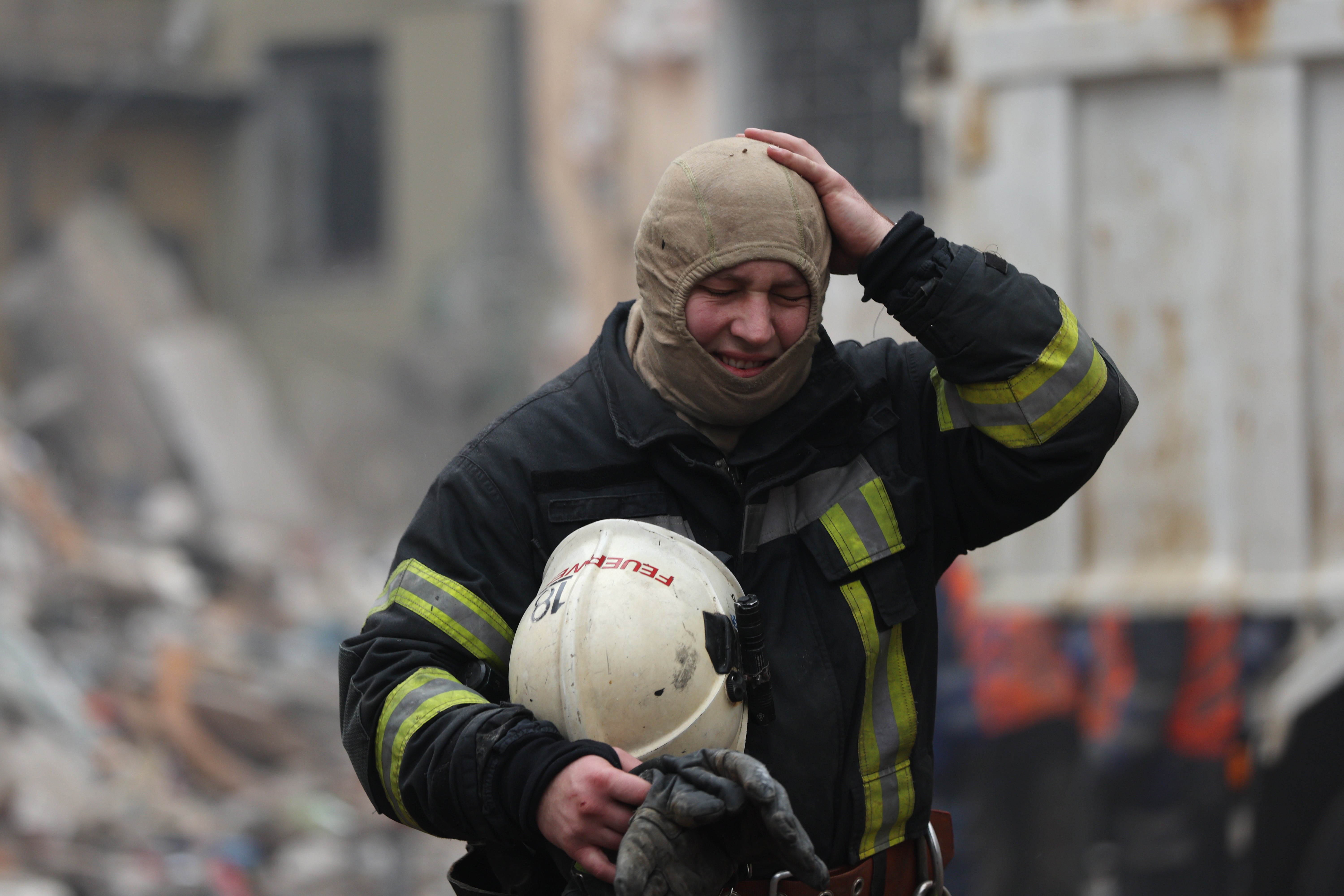Death toll from Russian missile strike that hit apartment block in Dnipro rises
President Volodymyr Zelensky said a child was among the people confirmed dead so far
Your support helps us to tell the story
From reproductive rights to climate change to Big Tech, The Independent is on the ground when the story is developing. Whether it's investigating the financials of Elon Musk's pro-Trump PAC or producing our latest documentary, 'The A Word', which shines a light on the American women fighting for reproductive rights, we know how important it is to parse out the facts from the messaging.
At such a critical moment in US history, we need reporters on the ground. Your donation allows us to keep sending journalists to speak to both sides of the story.
The Independent is trusted by Americans across the entire political spectrum. And unlike many other quality news outlets, we choose not to lock Americans out of our reporting and analysis with paywalls. We believe quality journalism should be available to everyone, paid for by those who can afford it.
Your support makes all the difference.The death toll from a Russian missile strike that hit an apartment block in the Ukrainian city of Dnipro on Saturday has risen to 30.
President Volodymyr Zelensky said a child was among the people confirmed dead so far and that 73 people had been wounded, including 13 children.
Thirty-nine people had been rescued by Ukrainian authorities but a further 43 were missing, he said on the Telegram messaging app.
Emergency workers said they had heard people screaming for help from underneath piles of debris from the nine-storey apartment block in the east-central city, with freezing temperatures adding to rescuers’ concerns.
“The chances of saving people now are minimal,” said Dnipro’s mayor Borys Filatov. “I think the number of dead will be in the dozens.”
Ukraine’s air force said the apartment block was struck by a Russian Kh-22 missile, a Soviet-era projectile that was developed during the Cold War to destroy warships.
Russia fired two waves of missiles at Ukraine on Saturday, striking targets across the country as fighting raged on the battlefield in the eastern towns of Soledar and Bakhmut.

Vladimir Putin’s forces have been targeting Ukraine’s energy infrastructure with missiles and drones since October, causing sweeping blackouts and disruption to the supply of central heating and running water.
In a statement on Sunday about its strikes the previous day, the Russian defence ministry did not mention Dnipro as a specific target. “All assigned objects were hit. The targets of the strike have been achieved,” it said.
Following the strike, the Ukrainian president used his nightly address to call on Western countries to supply more weapons in order to end “Russian terror” and attacks on civilian targets.
During a phone call with Mr Zelensky on the day of the Dnipro assault, prime minister Rishi Sunak signed off plans to send British army Challenger 2 main battle tanks to the front line.

No 10 has since confirmed that 14 tanks will be handed over as part of the agreement. The UK will also supply around 30 AS90s. The AS90 is a large, self-propelled gun that is operated by five gunners.
UK-based training will be given to Ukrainian armed forces on how to use the tanks and AS90 guns. This will begin in the coming days.
Mr Zelensky, writing on Twitter, said the move would “not only strengthen us on the battlefield, but also send the right signal to other partners”.
Meanwhile, in the eastern Donbas region, Ukraine’s forces are battling Russian troops around the small salt-mining town of Soledar. Serhiy Cherevatyi, spokesperson for Ukraine’s eastern command, told Ukrainian television that Russian forces had shelled the area around Soledar and Bakhmut 234 times in the past 24 hours.

Russia said on Friday that its forces had taken control of Soledar, but Ukraine insisted on Saturday that its own troops were fighting to keep hold of the town.
“Our soldiers are constantly repelling enemy attacks, day and night,” deputy defence minister Hanna Maliar said on Saturday. “The enemy is sustaining heavy losses but is continuing to carry out the criminal orders of their command.”
The Washington-based Institute for the Study of War said it was highly unlikely that Ukrainian forces still held positions within Soledar itself. The situation in the town could not immediately be verified.
It comes as authorities in Moldova said that specialist teams had carried out “controlled detonations” of explosives discovered in rocket debris that was found in a northern village near the country’s border with Ukraine.
Moldova‘s Ministry of Internal Affairs said in a statement that an on-site investigation had turned up around 80kg of explosives in the remains of the rocket, which was found on Saturday in the village of Larga in the Briceni district.



Join our commenting forum
Join thought-provoking conversations, follow other Independent readers and see their replies
Comments